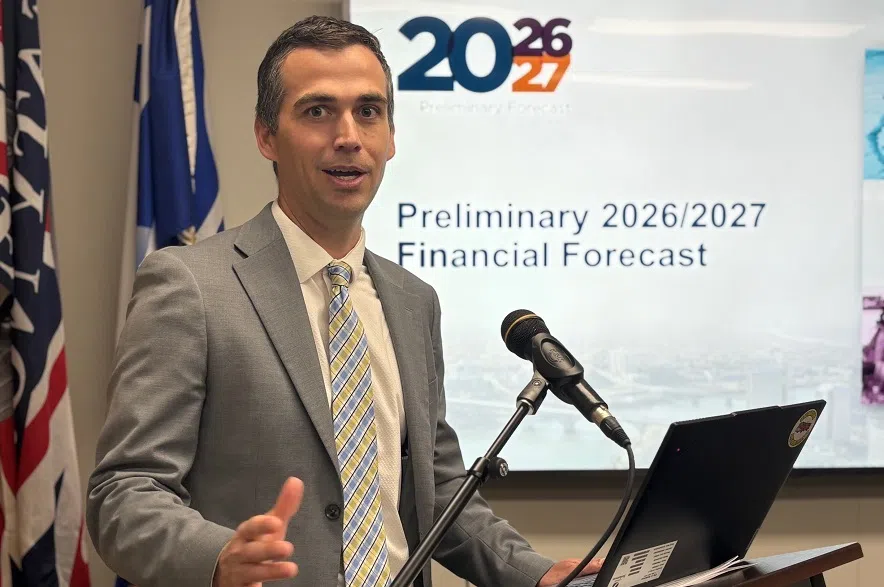The City of Saskatoon’s financial forecast estimates a property tax increase of about 9.9 per cent for homeowners in 2026 and 7.3 per cent in 2027.
For residents with properties valued at $397,000, this would mean an increase of approximately $22 per month in property taxes in 2026, and about $18 more per month in 2027.
According to Saskatoon’s chief financial officer, Clae Hack, the city has increasingly depended on property taxes since 2022, as other revenue sources have struggled to keep pace with inflation and population growth.
“In Saskatchewan, we don’t have very many revenue tools as a municipality, so property tax right now is approximately about 50 per cent of our budget,” he said.
Hack said the remaining revenue comes from government grants and user fees, such as those collected from transit services and leisure centres.
“There’s nobody more than me that would like a zero per cent property tax increase,” Hack said. “It’s just unfortunate that it’s the financial world that we’re facing today.”
City of Saskatoon video explains financial forecast
Over one-third of the property taxes would be attributed to the Saskatoon Police Service, which has a projected budget increase of 10.4 per cent in 2026 and a 6.4 per cent increase in 2027.
Hack said the increase is largely due to the requirements for collective bargaining agreements and resources for additional staff to keep up with the city’s growth.
The preliminary forecast also includes phase-in expenses for projects like the Link Transit System, the East Leisure Centre and two fire stations.
These costs, along with previously approved funding for investments such as roadways and civic building maintenance, amount to $7.5 million in 2026 and $9.6 million in 2027.
Hack said the city is forecasting an overall 2.79 per cent inflationary increase in 2026, and 2.96 per cent in 2027, with pressures coming from areas such as snow and ice facility maintenance and technology license increases.
Hack said that many cities across western Canada are experiencing similar financial pressures, but emphasized that Saskatoon maintains one of the lowest property tax rates in the region.
“I don’t think there’s a silver bullet answer for (a) magical revenue stream that’ll answer all of these pressures,” he said.
The city’s financial forecast does not represent the final budget, which will be approved by city council in November. Hack said he’s “confident” these figures will change before final approval.
The preliminary forecast will be presented at the city’s governance and priorities meeting next Wednesday, and Hack said the proposal will give administration time to refine figures over the next six months.
“The goal (is) to present a refined budget in November with a minimum one per cent reduction to the property tax, as well as present additional scenarios that could see further reductions made by city council during deliberations,” he said.











